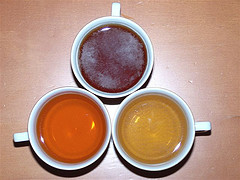…but Will of @artofactivism says we don’t need to lose heart – together we can bring it back to life
We are losing democracy. Like navigation by the stars, eating seasonal food, mending our clothes and walking to the shops, democracy is one of those skills that is dying out. The vote, that once-every-four-years (or more often if you’re super keen) moment when you play your role in the game being played out by the powers that be, has anaesthetized our entire experience of democracy, numbing us to its potential and allowing us to forget why we needed it in the first place.
We have forgotten what it means to have our say, how to think of ourselves as part of a wider society – our connections to other people, to our neighbourhood, to the social and to the political have been under assault for decades by a culture that prioritises above all the perspective that individualism is actualised in materiality – when we own more, consume more, do more, then we become better beings. Adverts that tell us to buy a new car, politicians that tell us to stock up on fuel, councils that take away our public spaces, watchdogs that penalise doctors for caring and police that tell us to report our neighbours are piece by piece dismantling what makes our society social; and without the social, then we have no need for democracy. Having lost any understanding of the need for collective wellbeing it is no surprise that democracy is broken.
The skills of democracy are being lost – because they are not skills that an individual by herself / himself can gain. The skills of democracy are practiced collectively because democracy only exists when everyone is taking part.
Damn them who told us we’d achieved democracy when ‘everybody’ (except minors, prisoners, asylum seekers and all those other groups who live on the fringes of society) was given the vote. Democracy isn’t something that can be achieved, a gardener doesn’t ‘achieve’ a garden, and democracy, like a garden, is a beautiful and unending process that needs constant attention, constant nurturing to develop and mature – sometimes it may even need total renovation. The skills of democracy don’t lie in putting a cross in the ballot box, but in finding ways to express, and then act on, societal concerns; problems that might not necessarily affect everybody – but which the resolution of can contribute to a collective well-being which will in the long-term benefit us all.
Democracy doesn’t lie behind a closed door in the polling booth, but out on the street where its impact will be felt; it doesn’t lie in the head of an individual but in the bonds that tie individuals together – and we are losing hold of how to put it into action.
So how can we save this dying skill, how can we re-learn the tools (if ever we had them in the first place) of democracy. Let’s start with talking to each other, with sharing our concerns, with meeting over cups of tea and saying hello to strangers. Let’s start by thinking about our concerns and then expressing our worries to others. Let’s imagine how we can make things better, and then work out ways to put our plans into action – and let’s do this together. Let’s discuss our differences and understand what compromise and consensus really means, and how privilege and power can corrupt these processes so that one side always wins. Let’s remember that we are equal in every way to the men in suits who stand in front of cameras telling us what is right – and that if we don’t agree with them, if we feel they have totally misunderstood the needs of our society, if they assault our relationships to each other and our environment, then we have a duty to stand up and be heard. And then we might start to understand what democracy could be.
Like Democracy Outside? On Facebook? Like Democracy Outside on Facebook
Help tour Democracy Outside around the UK – give us a fiver, a tenner, or some spare change: http://www.sponsume.com/project/demo-2012

